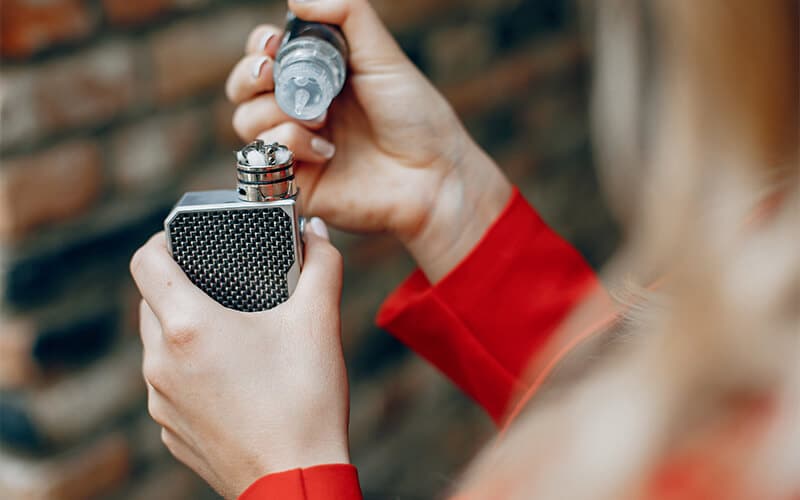E-Cigarettes
Electronic cigarettes, popularly known as e-cigarettes, e-cigs, or vape pens, are devices that resemble the practice of common tobacco smoking. The device is electrical in nature and mostly consists of a power source such as a battery, a heating element, an atomizer, a mouthpiece, and a place to hold a liquid such as a cartridge or a tank.
E-cigarettes are classified as electronic nicotine delivery systems (ENDS), and most of the versions are reusable. It comes in various designs, and some resemble regular cigarettes, cigars, pipes, pens, USB sticks, and other everyday items.
How Does It Work?
The atomizer present in the device transforms the e-liquid, fluid present in the cartridge, into an aerosol, commonly called vapor. It is either activated by taking a puff or pressing a button. The aerosol is inhaled by the users into the lungs, and the bystanders can also breathe it when exhaled.
The use of an e-cigarette is often termed as “vaping.” The aerosol consists of nicotine, an addictive central nervous system (CNS) stimulant found in regular cigarettes, cigars, and other tobacco products, flavorings, and other chemicals. The composition varies and is influenced by several factors, which also includes user behavior.
Harmful Composition Of Aerosol:
- Nicotine
- Cancer-causing chemicals
- Volatile organic compounds
- Heavy metals such as nickel, tin, and lead
- Ultrafine particles that can be inhaled deep into the lungs
- Flavoring such as diacetyl, a chemical linked to serious lung disease
JUUL
JUUL is the most popular e-cigarette in the U.S. manufactured by Juul Labs, Inc., an American electronic cigarette company. The company holds 97 percent of the e-cigarette market, and the rest is covered by Vuse, MarkTen, Blu, and Logic. Around 75 percent of all e-cigarettes sold in the U.S. are manufactured by Juul.
The company entered the market in 2015, and as per the Centers for Disease Control and Prevention (CDC), each JUUL pod contains a nicotine level of 20 regular cigarettes, which is higher than other e-cigarettes. JUUL is popular among teens and young adults due to its sleek design and nicotine level. Due to its dominance, the term Juuling is also popular among users.
Common Side Effects:
- Coughing
- Headaches
- Shortness of breath
- Dry mouth and throat
- Mouth and throat irritation
Serious Alleged Injuries May Include:
- Strokes
- Seizures
- Loss Of Appetite
- Respiratory Failure
- Decreased Immunity
- Increased Risk Of Coronary Vascular Disease
- Bronchiolitis Obliterans Organizing Pneumonia (BOOP)
- Increased Or Worsening Of Pre-Existing Nicotine Addiction
- E-Cigarette Or Vaping Product Use-Associated Lung Injury (EVALI)
FDA Safety Warnings:
- The U.S. Food and Drug Administration (FDA) asked all manufacturers of e-cigarettes to apply for approval for the continuation of the product products in the United States until September 9, 2020.
- April 2018: The FDA started a series of measures to reduce vaping among youths and launched an investigation.
- November 2018: The FDA announced restrictions on the sale of flavored e-cigarette vape fluids.
- August 2019: The FDA notified four companies to remove 44 flavored e-cigarette fluids and hookah tobaccos from sale in the United States.
- September 9, 2019: The FDA issued a warning letter to Juul Labs for its marketing practices.
- January 2, 2020: Following the outbreak of e-cigarette lung injury, the FDA announced a ban on almost all flavored vaping cartridges and pods.
Legal Updates:
Defendant:
Juul Labs, Inc.
Defendant Law Firm:
- Gregory P. Stone, Daniel B. Levin, Bethany W. Kristovich, and John M. Gildersleeve of Munger Tolles & Olson LLP.
- Renee D. Smith and Peter A. Farrell of Kirkland & Ellis LLP.
Allegations:
Currently, more than 900 product liability and class action complaints are filed throughout the U.S. District Court system, each claiming that the teens and young adults have been left with nicotine addiction problems from JUUL vaping pods, including false and misleading advertisements.
Plaintiffs’ Steering Committee:
- Rachel Abrams – Levin Simes Abrams
- Erin Dickinson – Crueger Dickinson
- Michelle Drake – Berger Montague
- Jonathan Gdanski – Schlesinger
- Adam J. Gutride – Gutride Safier LLP
- Bradley D. Honnold – Goza & Honnold, LLC
- Emily Jeffcott – Morgan & Morgan
- Kristine Kraft – Schlichter Bogard & Denton, LLP
- Esfand Y. Nafisi – Migliaccio & Rathod LLP
- Matt Schultz – Levin Papantonio
- Sabita J. Soneji – Tycko & Zavareei LLP
- Joseph Vanzandt – Beasley Allen Law Firm
- Mikal C. Watts – Watts Guerra LLP
- Michael M. Weinkowitz – Levin Sedran & Berman LLP
Lawsuit Status:
JUUL injury lawsuits are being prepared for early bellwether trials, which are expected to begin in early 2022.
MDL Status:
MDL No.: 2913
(In Re: Juul Labs, Inc. Marketing, Sales Practices & Products Liability Litigation)
On October 2, 2019, the United States Judicial Panel on Multidistrict Litigation issued an order transferring cases to the Northern District of California for coordinated or consolidated pretrial proceedings before Judge William H. Orrick.
Important Verdicts & Settlements: Currently there are no settlements made.
EVIDENCE:
- Duration Of Usage
- Indication Of Usage In Medical Records
- Evidence Of Injury In Follow Up Medical Records
Medical Record Review and claim validation of E-Cigarette: JUUL case should take approximately 3 hours in most instances; however, this approximation may vary in cases based on the volume of records.
Contact The Lidji Firm today for an initial case review.
Website: www.TheLidjiFirm.com Call: 800-BAD-PILL (800)223-7455
Download a Guide for JUUL Lawsuit with The Lidji Firm


























